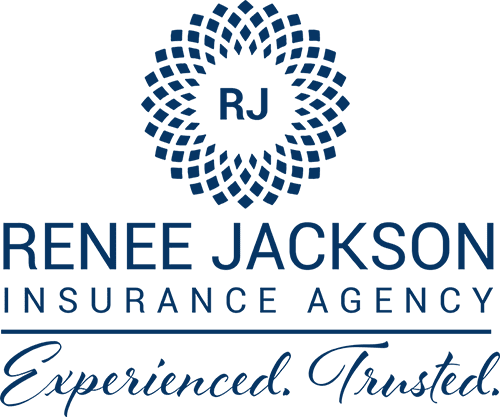
Life insurance is a topic that often comes to the forefront when people are in their younger years, perhaps starting a family or taking out a mortgage. However, as we age, the importance of life insurance remains, and for those over 50, it can be a valuable financial tool. In this blog, we will explore the world of life insurance for individuals over 50, addressing common questions and shedding light on the possibilities available. We’ll also provide a graph illustrating how the cost of life insurance changes as you age.
The Need for Life Insurance Over 50
As we reach our 50s, our financial landscape often undergoes significant changes. Children may have grown up and become financially independent, mortgages may be paid off, and retirement might be on the horizon. In this stage of life, the focus shifts from providing for dependents to ensuring financial stability and peace of mind for your loved ones after you’re gone.
Here are some key reasons why individuals over 50 may consider life insurance:
- Income Replacement: Even if you are nearing retirement, your income may still be a significant part of your household finances. Life insurance can help replace lost income for your spouse or beneficiaries in case of your unexpected passing.
- Debt and Expenses: Life insurance can help cover outstanding debts such as mortgages, personal loans, or credit card balances. It can also assist with end-of-life expenses, like medical bills and funeral costs, which can be substantial.
- Legacy Planning: If you have specific wishes for your estate or want to leave a financial legacy for your heirs or favorite charities, life insurance can facilitate this by providing a tax-free payout to your beneficiaries.
- Estate Taxes: For those with sizable estates, life insurance can help cover estate taxes, ensuring that your heirs receive the assets you intended for them without a significant tax burden.
- Business Continuation: If you own a business, life insurance can be a crucial tool for ensuring a smooth transition of ownership or providing financial support to your business partners.
Types of Life Insurance for Individuals
Over 50 Life insurance options for individuals over 50 are diverse, catering to various needs and budgets. Here are the main types of life insurance policies available:
- Term Life Insurance: Term life insurance provides coverage for a specified term, typically 10, 20, or 30 years. It is often an affordable option, especially if you are in good health. However, premiums can increase substantially when the term ends or when you renew at an older age.
- Whole Life Insurance: Whole life insurance is a permanent policy that covers you for your entire life. It includes a cash value component that grows over time and can be accessed while you’re alive. Premiums for whole life insurance tend to be higher than term life, but they remain level throughout your life.
- Universal Life Insurance: Universal life insurance combines a death benefit with an investment component. This policy allows you to adjust your premiums and death benefit over time, offering flexibility. It also accumulates cash value that can be invested.
- Final Expense Insurance: Also known as burial or funeral insurance, this type of policy is designed to cover end-of-life expenses, such as funeral and burial costs. It is typically more affordable and easier to qualify for, making it a popular choice for seniors.
- Guaranteed Issue Life Insurance: This type of life insurance is often available without a medical exam or health questions, making it accessible to individuals with pre-existing health conditions. However, it may come with higher premiums and lower coverage amounts.
- Joint Life Insurance: Joint life insurance covers two people under a single policy. It can be a cost-effective option for couples, providing a death benefit when either spouse passes away.
Factors Affecting Life Insurance Costs for Individuals Over 50
The cost of life insurance is influenced by several factors, and age is a significant determinant. As you get older, the risk of mortality increases, leading to higher premiums. Other factors that affect life insurance costs include:
- Health: Your current health and medical history play a crucial role in determining your life insurance premiums. Individuals with pre-existing health conditions may pay higher premiums.
- Coverage Amount: The death benefit or coverage amount you choose directly impacts your premiums. Higher coverage amounts result in higher premiums.
- Type of Policy: Different types of life insurance policies have varying costs. Term life insurance is generally more affordable than whole or universal life insurance.
- Smoking Status: Smoking is a major risk factor for many health conditions. Non-smokers typically pay lower premiums.
- Gender: Statistically, women tend to live longer than men, which can result in lower premiums for female policyholders.
- Lifestyle and Habits: Your lifestyle choices, such as your occupation, hobbies, and travel habits, can influence your premiums. Risky behaviors may lead to higher costs.
- Medical Exam: Some policies require a medical exam, and the results can impact your premiums. A clean bill of health may result in lower costs.
Tips for Securing Affordable Life Insurance Over 50
While premiums tend to increase with age, there are strategies that we at Renee Jackson Insurance Agency utilize on your behalf to secure affordable life insurance for individuals over 50:
- Shop Around: We do the shopping for you by obtaining quotes from multiple insurance providers to compare premiums and coverage options. Different insurers have varying underwriting guidelines, so rates can differ significantly.
- Maintain Good Health: If possible, work on maintaining or improving your health through regular exercise and a healthy diet. This can help you qualify for better rates.
- Consider Term Life: Term life insurance is generally more cost-effective than permanent policies like whole life or universal life. It can provide the coverage you need at a lower cost.
- Bundle Policies: If you have other insurance policies, such as auto or home insurance, we take that into consideration by bundling them with your life insurance for potential discounts.
- Review Existing Policies: If you already have life insurance, we review your policy periodically to ensure it still meets your needs. You may be able to adjust the coverage or find a more cost-effective option.
- Consider Guaranteed Issue Policies: If you have health issues that make traditional coverage expensive, a guaranteed issue policy may be a viable option, although it may come with limitations on coverage amounts.
Conclusion: Planning for Your Financial Future
Life insurance for individuals over 50 is not only possible but often a wise financial decision. It provides peace of mind, financial security for your loved ones, and the opportunity to leave a lasting legacy. While the cost of life insurance increases with age, careful planning, and consideration of your unique circumstances can help you secure affordable coverage.
When exploring life insurance options, be sure to consult with us to help you make informed decisions. Remember that every individual’s situation is unique, so it’s essential to tailor your life insurance strategy to your specific needs and goals. By taking proactive steps to secure life insurance, you are taking a significant step toward ensuring your financial stability and the well-being of your loved ones in the years to come. Life insurance is not just a safety net; it’s a way to invest in your family’s future and provide lasting financial support, even after you’re gone.

